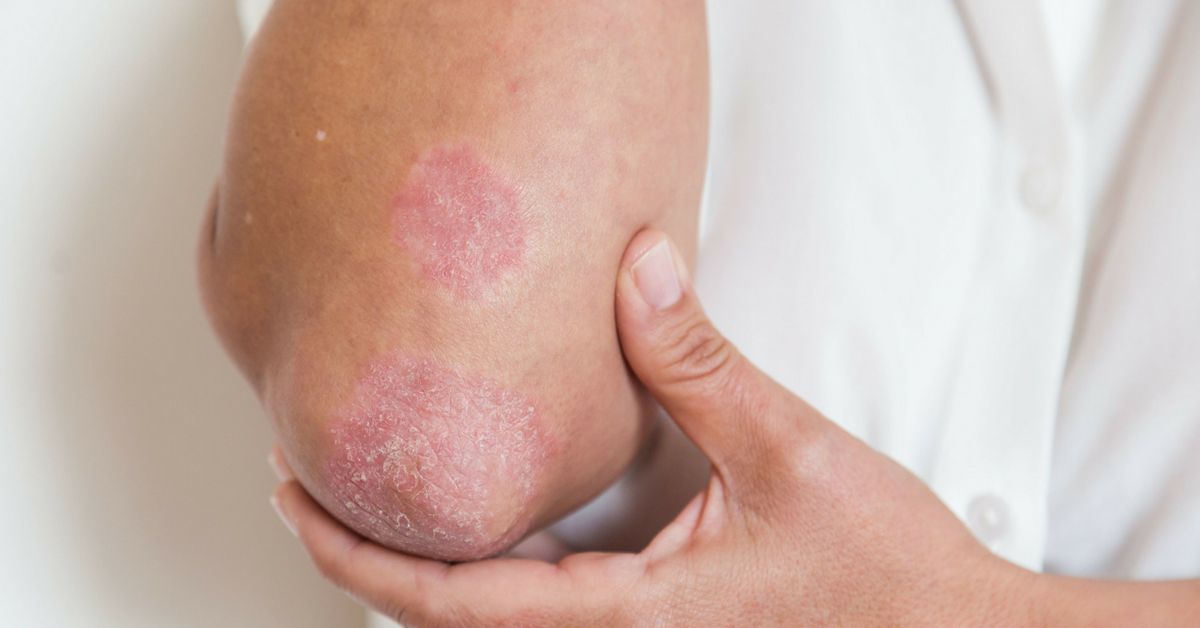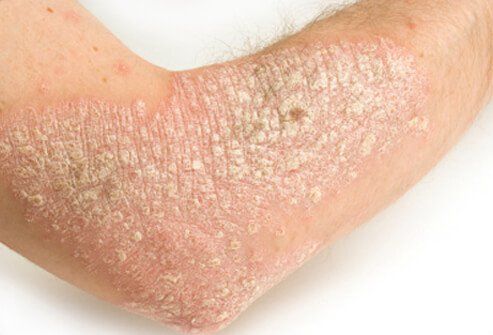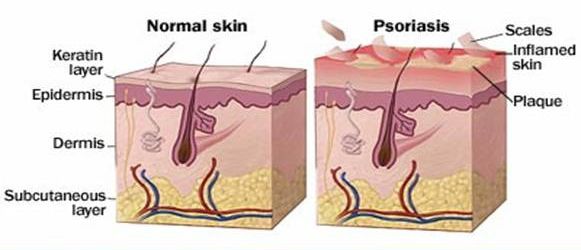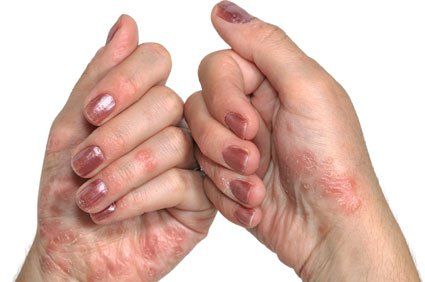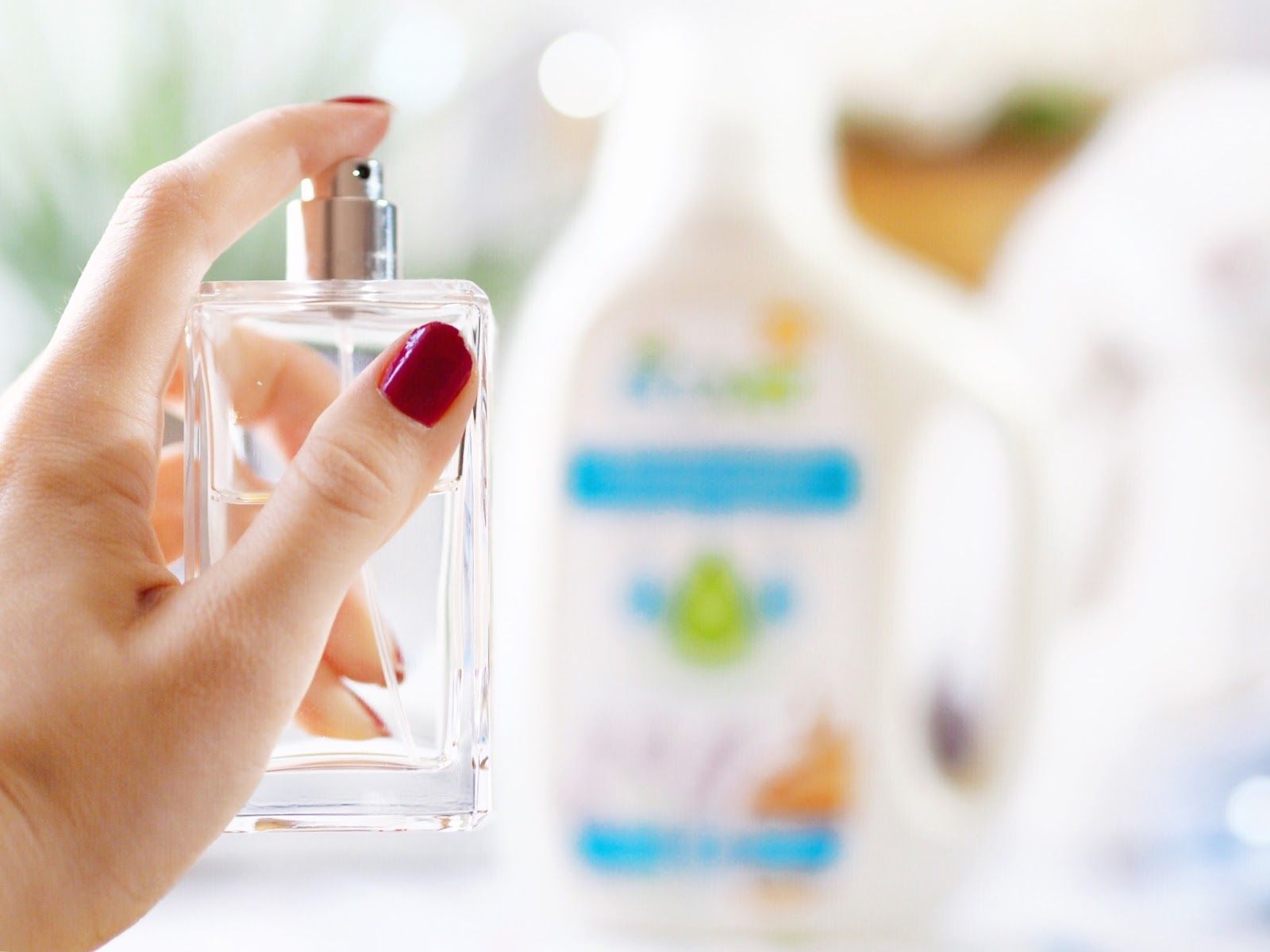If you have inflamed, scaly skin, it may be more than just dry skin. A strong possibility may be a condition called psoriasis, a chronic inflammatory disease of the immune system, where skin cells multiply up to 10 times faster than normal.
When the underlying cells reach the skin's surface and die, the increased cells form raised, red plaques that cover the skin with white scales.
While it primarily affects one's skin and joints (including the scalp), it could also impact the fingernails, toenails, the soft tissues of the genitals, and the inside of the mouth.
While it often comes and goes, the worst thing someone can do is nothing, and hope it goes away on its own.
According to the American Academy of Dermatology, there are 7.5 million Americans suffer from psoriasis, and can occur at any age. While primarily seen in adults, up to 40% of people also experience joint inflammation that produces symptoms of arthritis, called psoriatic arthritis.
Luckily, there are simple solutions to treat it.
There are several ways to treat psoriasis, but treatment can vary depending on the severity of your case.
If you only have mild psoriasis, it can be easily treated with anti-inflammatories, including cortisone injections, light therapy and vitamin D creams.
However, more severe cases can require more systemic medications like pills or shots to calm the inflammation.
If that seems daunting, there are ways to help mitigate the affects of psoriasis too.
1. Keep your skin moist
One of the most effective treatments for irritated skin is to keep your skin moisturized. There are a variety of creams available depending on the severity of your psoriasis and and lotion preferences.
Also try a humidifier if the air is too hot and dry, it'll help maintain your skin's moisturizer as well.
2. Take warm baths
Taking a bath with fragrance-free, mild soap can make a world of difference. It will soothe itchy spots and remove dead skin. Soak for at least 15 minutes and make sure not to rub a towel on yourself to dry off. Just pat the skin lightly to avoid irritation.
Make sure the water isn't scalding either, as hot water can damage your skin instead.
3. Stop smoking and limit alcohol intake
Smoking can trigger a psoriasis flare-up, so speak to your doctor to find the best way to quit. For example, while nicotine patches may seem like a good alternative, it can actually make your skin worse.
Heavy drinking can also lead to negative side affects, especially if mixed with psoriasis drugs. Moderation is key: women should have only up to one drink per day, while men should have a maximum of two.
4. Avoid fragrances
The majority of colognes and perfume have dyes and other chemicals that can irritate your skin. While it can make you smell great, it'll make your skin feel worse by inflaming your psoriasis. While it would be better to avoid these products all together, if you do choose to wear a fragrance, make sure it has a "for sensitive skin" label.
5. Take it easy
Stress can affect your psoriasis, so it's important to keep it easy. A number of people have traced their first outbreak to a stressful event. But don't fret, there are plenty of ways to diminish your stress. Easy tactics include building a strong support system of family and friends, participating in yoga and meditation, and deep breathing exercises.
Share this if you or anyone you know suffers from psoriasis!
Source: Healthline, WebMD
